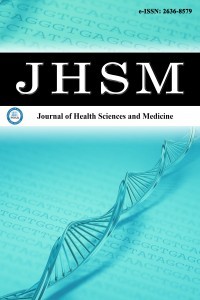1.
Cardaillac C, Rua C, Simon EG, El-Hage W. Oxytocin and postpartum depression. J Gynecol Obstet Biol Reprod (Paris). 2016;45(8):786-795. doi: 10.1016/j.jgyn.2016.05.002
2.
Zelkowitz P, Gold I, Feeley N, et al. Psychosocial stress moderates the relationships between oxytocin, perinatal depression, and maternal behavior. Horm Behav. 2014;66(2):351-360. doi:10.1016/j.yhbeh.2014.06. 014
3.
Lara-Cinisomo S, McKenney K, Di Florio A, Meltzer-Brody S. Associations between postpartum depression, breastfeeding, and oxytocin levels in latina mothers. Breastfeed Med. 2017;12(7):436-442. doi:10.1089/bfm.2016.0213
4.
Kroll-Desrosiers AR, Nephew BC, Babb JA, Guilarte-Walker Y, Moore Simas TA, Deligiannidis KM. Association of peripartum synthetic oxytocin administration and depressive and anxiety disorders within the first postpartum year. Depress Anxiety. 2017;34(2):137-146. doi:10. 1002/da.22599
5.
Hinshaw K, Simpson S, Cummings S, Hildreth A, Thornton J. A randomised controlled trial of early versus delayed oxytocin augmentation to treat primary dysfunctional labour in nulliparous women. BJOG. 2008;115(10):1289-1296. doi:10.1111/j.1471-0528.2008.01819.x
6.
Gu V, Feeley N, Gold I, et al. Intrapartum synthetic oxytocin and its effects on maternal well-being at 2 months postpartum. Birth. 2016; 43(1):28-35. doi:10.1111/birt.12198
7.
Peng S, Lai X, Du Y, Meng L, Gan Y, Zhang X. Prevalence and risk factors of postpartum depression in China: a hospital-based cross-sectional study. J Affect Disord. 2021;282:1096-1100. doi:10.1016/j.jad.2021.01.012
8.
Cox JL, Chapman G, Murray D, Jones P. Validation of the Edinburgh Postnatal Depression Scale (EPDS) in non-postnatal women. J Affect Disord. 1996;39(3):185-189. doi:10.1016/0165-0327(96)00008-0
9.
O’Hara MW, Wisner KL. Perinatal mental illness: definition, description and aetiology. Best Pract Res Clin Obstet Gynaecol. 2014;28(1):3-12; doi: 10.1016/j.bpobgyn.2013.09.002
10.
The American College of Obstetricians and Gynecologists Committee Opinion no. 630. Screening for perinatal depression. Obstet Gynecol. 2015;125(5):1268-1271. doi:10.1097/01.AOG.0000465192.34779.dc
11.
O’Hara MW, McCabe JE. Postpartum depression: current status and future directions. Annu Rev Clin Psychol. 2013;9:379-407. doi:10.1146/annurev-clinpsy-050212-185612
12.
Norhayati MN, Hazlina NH, Asrenee AR, Emilin WM. Magnitude and risk factors for postpartum symptoms: a literature review. J Affect Disord. 2015;175:34-52. doi:10.1016/j.jad.2014.12.041
13.
Dennis CL, Dowswell T. Psychosocial and psychological interventions for preventing postpartum depression. Cochrane Database Syst Rev. 2013;(2):CD001134. doi:10.1002/14651858.CD001134.pub3
14.
Milgrom J, Gemmill AW. Screening for perinatal depression. Best Pract Res Clin Obstet Gynaecol. 2014;28(1):13-23. doi:10.1016/j.bpobgyn.2013. 08.014
15.
Paschetta E, Berrisford G, Coccia F, et al. Perinatal psychiatric disorders: an overview. Am J Obstet Gynecol. 2014;210(6):501-509. doi:10.1016/j.ajog.2013.10.009
16.
Sivas MC, Ohanoglu Cetinel K, Aykan İİ. The effect of the number of breastfeeding sessions per day in the early postpartum period on postpartum depression scores among pregnant women without risk factors for depression: a retrospective cohort study. Breastfeed Med. 2024;19(1):47-51. doi:10.1089/bfm.2023.0193
17.
Whitley J, Wouk K, Bauer AE, et al. Oxytocin during breastfeeding and maternal mood symptoms. Psychoneuroendocrinology. 2020;113:104581. doi:10.1016/j.psyneuen.2019.104581
18.
Thul TA, Corwin EJ, Carlson NS, Brennan PA, Young LJ. Oxytocin and postpartum depression: a systematic review. Psychoneuroendocrinology. 2020;120:104793. doi:10.1016/j.psyneuen.2020.104793
19.
Bell AF, Carter CS, Steer CD, et al. Interaction between oxytocin receptor DNA methylation and genotype is associated with risk of postpartum depression in women without depression in pregnancy. Front Genet. 2015;6:243. doi:10.3389/fgene.2015.00243
20.
Reiner I, Van IJzendoorn MH, Bakermans-Kranenburg MJ, Bleich S, Beutel M, Frieling H. Methylation of the oxytocin receptor gene in clinically depressed patients compared to controls: the role of OXTR rs53576 genotype. J Psychiatr Res. 2015;65:9-15. doi:10.1016/j.jpsychires. 2015.03.012

